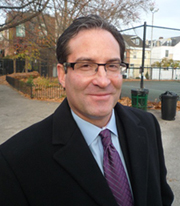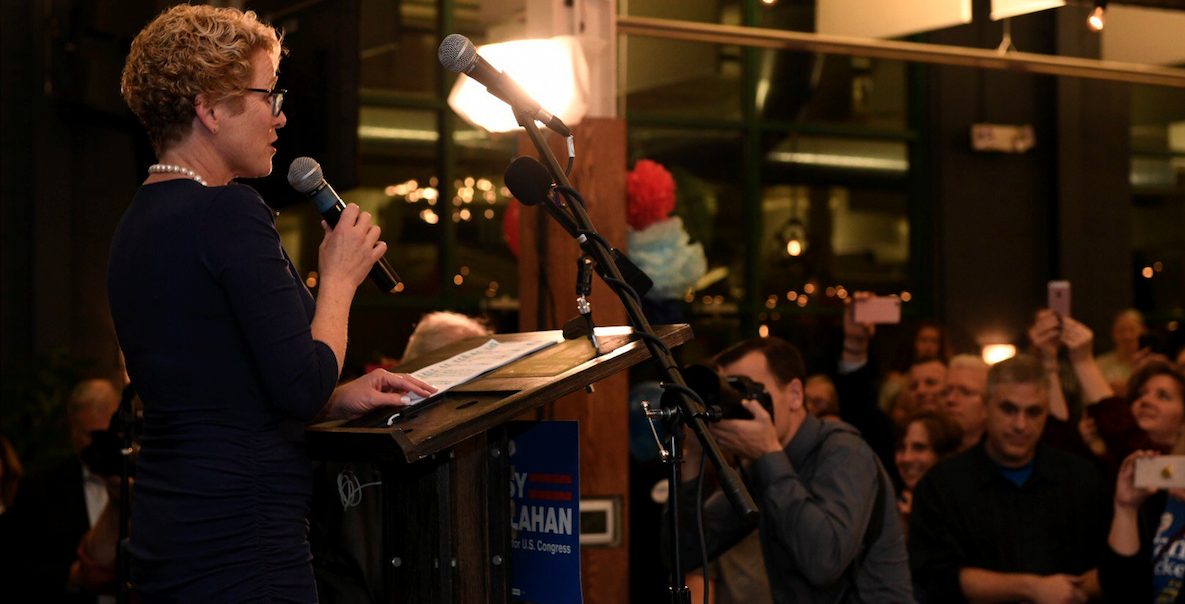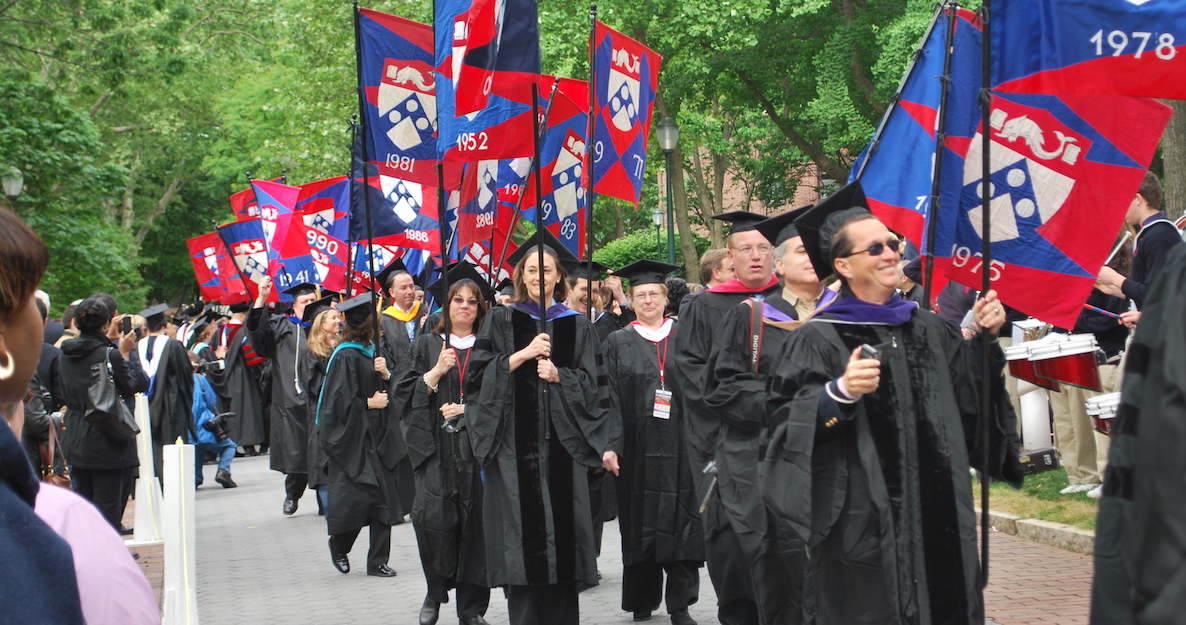It was several years ago, well before Jeff Hornstein became executive director of the Economy League of Greater Philadelphia, that he first started mulling over an economic conundrum in Philly: The city’s major education and medical institutions spend billions of dollars a year—most of it outside the city—on services and supplies they need to function. Meanwhile, 250,000 Philadelphians live in poverty, in a city that is in dire need of good-paying jobs.

There must, he surmised, be a way to meld those two needs. Yesterday, the Economy League and Hornstein—a former labor organizer who spent several years in Alan Butkovitz’s City Controller’s office—officially launched Philadelphia Anchors for Growth & Equity (PAGE), a nonprofit whose purpose is to bridge that divide. Hornstein has spent the last nine months corralling all the major universities and hospitals, as well as the city, around his mission: Building and supporting local businesses so they can provide lucrative services to the city’s growing eds and meds.
I caught up with Hornstein a few hours before the launch, at Drexel University, that featured Kurt Sommer, director of a similar program in Baltimore.
RPS: What gave you the idea for PAGE?
JH: It’s pretty simple. At my block party five years ago, one of my neighbors came over to me and said, “Do you know what’s going on in Cleveland?” I said, “Other than decrepitude and violence?” And he told me about what they were doing to connect major institutions and local businesses. So I started doing research into it.
About 10 to 15 years ago, The Cleveland Foundation pulled people together and said, “This city is going down the toilet; we need to do something different. What are we going to do?” They had major institutions around the table—like the Cleveland Clinic and Case Western University—who said, “We have an obligation to do something to help our community.” There are all these things that major institutions with a charitable purpose should be thinking about, especially since they’re on tax exempt land. So how do we use this economic power to fuel economic growth?
The laundry wouldn’t just serve local hospitals. You could draw a 100 mile circle and the Philly plant becomes the hub. We have dollars flowing in from outside the city fund growth in the city.
It harkens back to the work in the early 90s of economist Joseph Persky, who looked at the way Japan and others became economic powerhouses: They used local demand to grow local supply.
RPS: What did you learn when you started looking into Philly’s spending habits?
JH: When I was at the City Controllers Office, we did a couple of reports that looked at how the major institutions spend their money. There is $5.5 billion spent annually by institutions here. About half is spent locally. Can we build jobs by leveraging that delta? The answer is yes.
I started to look at the kinds of firms we have in town that produce the things we could buy. But it was an academic exercise until Mayor Kenney was elected and Harold Epps came to the Commerce Department. We started bringing people together and asking “What do you buy? Where do you get it?”
One of the first things we noticed was that some institutions put language into their food spending budget about buying local. But Penn, for instance, buys from Aramark; Aramark buys from someone else. That someone else might not be local. I asked: “What’s local?” They’d say, “Within 50 miles of the client.” I said, “What if it was 10 miles, in a former warehouse, grown by ex-offenders?” They said, “We’d love to tell that story.” I bet they would. They want their neighborhoods to get better out of enlightened self-interest.
RPS: What institutions are around that table?
JH: The founding members of this are the big eds and meds: CHOP; Drexel; Jefferson; Penn; Penn Medicine; Temple; Temple Health; plus the city. They all agreed to pay $25,000 a year to get this off the ground. Several other smaller institutions are part of the round table but not invested yet. Our initial ask was for three years of investment; only the city made a formal commitment but I fully expect they will all re-up, and we’ll add one or two. We’re in a pretty good place to see some philanthropic dollars now, too.
RPS: What’s an example of how this could work?
JH: We are starting where Cleveland started: With laundry. Jefferson Health does 13 million pounds of laundry a year; Penn does 12 million pounds. Together, all the hospitals spend upwards of $10 million on it. But right now, all the hospitals in the region send their laundry 100 miles away to be cleaned because they have no option.
Our first move was to see if there was a local, diverse laundry company interested. I went to [local B Corporation] Wash Laundry, and gave them right of first refusal. They thought about it for six months and declined because it didn’t fit with their growth plans. The hospitals sent us a couple vendors and we went to them and said, “We’ll give you all the business if you agree to build a laundry here.” Now we have two major laundry companies vying to build a plant here.
We are hoping to announce groundbreaking for a new medical laundry facility in Philly next year. We are just the conveners; we’re not involved in contracting. But we brought in the vendors, and the hospitals, and we’re pretty close to having a deal done.
RPS: What would this mean for Philly?
![]()
JH: A laundry plant is maybe 40,000 square feet. It’s a $10 to $15 million build. The companies are committed to hiring local and minority contractors to do the work. They are going to let the hospitals be involved in the design process, so it’s built to their specs. A typical plant employs 100 to 150 people—it’s a big operation.
But it wouldn’t serve just local hospitals. The laundry companies have been interested in building something close to here already. Now they understand the value proposition of doing it in the city itself, but you could draw a 100 mile circle and the Philly plant becomes the hub. We have dollars flowing in from outside the city fund growth in the city.
RPS: That still means money going to a non-local company, though. How do you help small local companies capture some of the business?
JH: That’s the second piece of this. The first piece is understanding the supply chain, looking at a specific opportunity—like laundry—and demonstrating how it could work. Piece 2 is business development. How do we find the companies that want to go from a small business to a $1 million company? And what do they need to scale? Piece 3 is finding those companies access to capital. Piece 4 is workforce development.
There is $5.5 billion spent annually by institutions here. About half is spent locally. Can we build jobs by leveraging that delta? The answer is yes.
Consider the laundry: Fortunately, these two companies don’t have capital issues. They will have workforce needs. Our understanding is that a lot of laundries have failed because of not siting their facility in the right place. If you’re paying people $13 or $14/ hour, they’re not going to be driving somewhere next to a highway; you need to be near public transit. And people need to be trained.
There’s an art to all of this, and I’m trying to do it holistically. It’s not all going to happen at once; this is a 10 year plan.
RPS: What happens after those 10 years?
JH: I’ll be happy if by the time I turn 60 [in 10 years] that we’ve created 5,000 to 10,000 jobs. And I think that’s doable. We keep uncovering sectors where there are viable places for collaboration, like with laundry, or medical surgical services. Or like the food economy, with indoor farming opportunities. The food services company at Penn is desperate to meet their local targets. They go through hundreds and hundreds of pounds of pureed tomatoes a year. They can get those locally during the season; not so much in the winter.
We are putting together a proposal for a “seconds processing” center that would take all the bruised and ugly tomatoes that are thrown away at farms in Lancaster and bring them to Philly to a warehouse somewhere to be repurposed as pureed tomatoes. It would be doubly local: From our region’s bread basket, and employing people who come from the neighborhood in North Philly or somewhere where a warehouse has been repurposed.
It’s really about finding the opportunities that create economies of scale and solve a business problem.
RPS: Can I ask about the name? Why PAGE?
JH: Initially we called it Anchor Procurement Initiative but that was too wonky. We put out a couple different ideas to the institutions, and PAGE got the most votes. We’re very democratic.
Photo: The West End via Flickr





